1GB IronKey USB Flash Drive With Hardware Encryption
Performance Testing
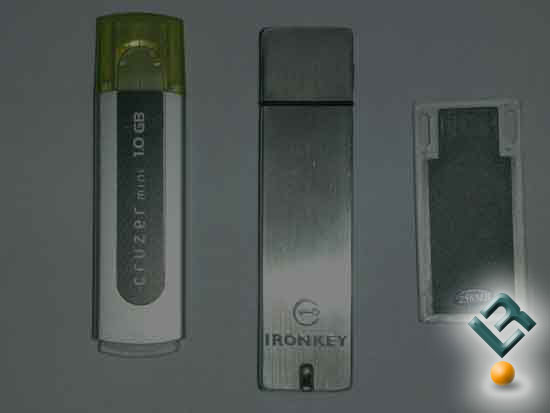
Well here are the contenders. First is a Year Old SanDisk Crusier 1GB Flash Driver. The Second is a Generic 256MB Flash Drive. The Third is the IronKey 1GB Flash Drive.
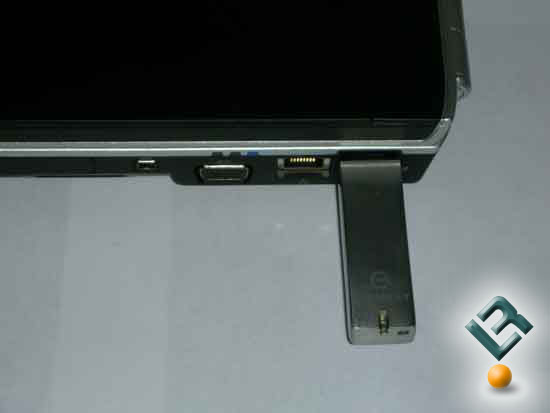
To test out the Flash Drives we used the Dell Inspiron 1520 notebook as the Test Bed and used SiSoftware Sandra XI SP3 Flash Drive benchmark. Each test was run five times to verify that the benchmark was indeed correct.
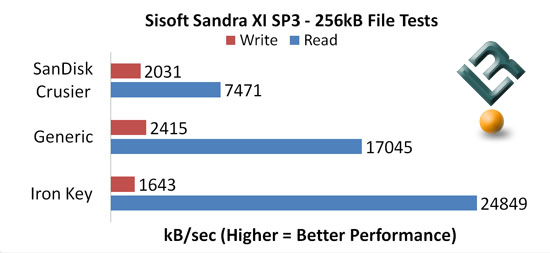
The test here was interesting. The SanDisk USB Drive is rather old, and indicative of what your older USB drive can offer you. So it was a head to head matchup here between the Generic Drive and the IronKey 1GB Flash Drive. The IronKey 1GB Flash Drive delivered great read performance, beating the Generic Drive by over 7,000 kB/s. The write performance of the IronKey was a little disappointing as it came in last, coming in even slower than the SanDisk USB Drive.
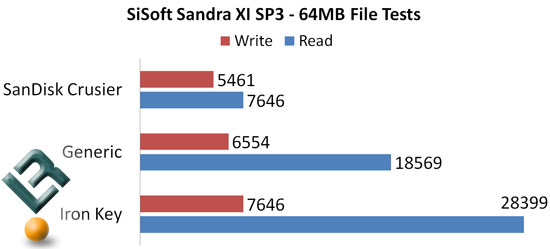
Again in this test we see that the IronKey handily beat the Generic Drive in the Read Test, and beat the Generic Drive by almost 10,000 kB/s. The IronKey even beat the Generic Drive in the in the Write Test. The IronKey clearly showed its dominance with large file transfers, matching the read performance of the SanDisk Drive with its Write Performance Score.
You may be thinking great, you showed a bunch of numbers, but what else can I do with this drive. When tossing around ideas with the Staff here, we decided why not show Linux Running on a Flash Drive? So I ran to Google to track down how to do this. The first distribution that came to mind was Damn Small Linux, due to the fact that its such a tiny distribution and that its based on Knoppix which can be run on almost any system with no issues. Eventually I came to this http://www.althack.com/2006/03/10/how-to-run-linux-on-a-usb-drive/ and below are the results.
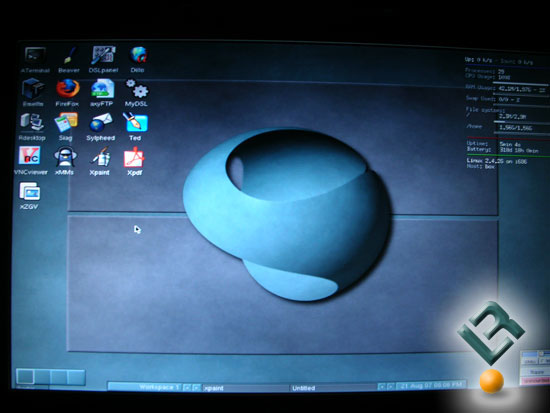
The Linux Installation was completely usuable, but due to not all of the features of the Inspiron 1520 being supported, I was not able to have internet access or sound. With most Linux Clients, wireless is an issue. It never seems to work on any distrobution out of the box. This will clearly be fixed in newer release of Damn Small Linux seeing it is based on Debian, and Debian updates its installations at least once a year. With some tinkering and research I’m sure I could get a fully working installation from the flash drive.

Comments are closed.